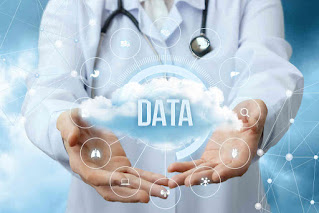In today's fast-paced world, technology has made significant progress in almost all aspects of our lives, including healthcare. The use of hospital rounding software has made it possible for medical professionals to manage patient care more efficiently, leading to improved outcomes and greater patient satisfaction. This blog will explore the benefits of using hospital rounding software to streamline healthcare workflow.
What
is Hospital Rounding Software?
Hospital rounding software is software that automates and streamlines the process of patient care rounding in
a hospital setting. It is designed to eliminate the manual and paper-based
process of rounding, which is time-consuming and error-prone. Hospital rounding software provides
medical professionals with an electronic platform to document patient care and
communicate with other members of the healthcare team.
Benefits
of Hospital Rounding Software
1. Improved
Workflow Efficiency
Hospital rounding software eliminates
the need for manual and paper-based documentation, making the rounding process
more efficient. The software provides a streamlined workflow, allowing medical
professionals to document patient care in real time, reducing the risk of
errors and ensuring that all healthcare team members have access to
up-to-date information.
2. Enhanced
Patient Safety
Hospital rounding software improves
patient safety by reducing the risk of medication errors, falls, and other
adverse events. The software provides real-time alerts and reminders to ensure
that medical professionals follow the correct procedures and protocols when
providing care to patients.
3. Increased
Patient Satisfaction
Hospitalrounding software
improves patient satisfaction by providing a more personalized and efficient
care experience. The software enables medical professionals to document patient
preferences, which can be used to tailor care plans and improve patient
outcomes. Patients also appreciate the ability to communicate with their
healthcare team through the software, giving them greater control over
their care.
4. Better
Communication among Healthcare Team Members
Hospital rounding software provides a
platform for better communication among healthcare team members. The software
enables medical professionals to share information and collaborate on care
plans in real time, leading to better outcomes for patients.
5. Cost
Savings
Hospital rounding software can result in
cost savings for healthcare organizations. The software eliminates the need for
paper-based documentation, reducing costs associated with printing and storage.
It also reduces the risk of errors, which can result in costly litigation.
Conclusion
Healthcare workflows are an essential
tool for healthcare organizations looking to streamline workflow, improve
patient outcomes, and reduce costs. The software provides a platform for better
communication among healthcare team members, leading to more efficient and
effective care delivery. With the increasing demand for quality care, hospital
rounding software is becoming an indispensable part of modern healthcare.

Comments
Post a Comment